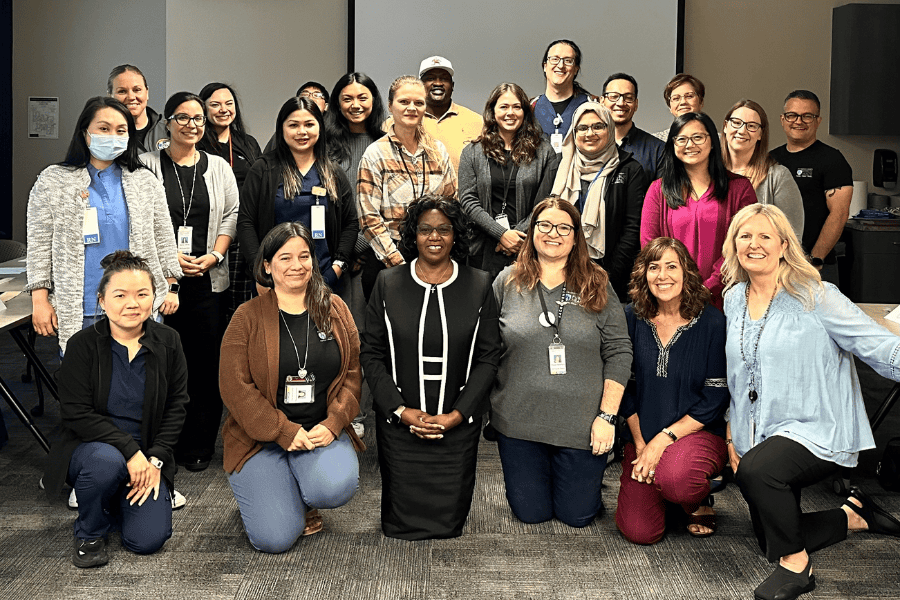Illinois PHIG Impact Report
Sameer Vohra, MD, JD, MA, FAAP, an ASTHO member and director of the Illinois Department of Public Health, explains how his team is using the PHIG to impact the state of Illinois.
Read more about this story.
Success Stories
See firsthand stories of impact from the PHIG grant. From small wins to transformative changes, PHIG is fostering widespread innovation in public health systems and structures.
Sameer Vohra, MD, JD, MA, FAAP, an ASTHO member and director of the Illinois Department of Public Health, explains how his team is using the PHIG to impact the state of Illinois.
Read more about this story.
North Carolina transformed operations by pursuing PHAB accreditation—boosting strategic investments, strengthening Foundational Capabilities, and building community trust.
Read more about this story.
The Chicago Department of Health (CDPH) used PHIG funds to modernize its employee onboarding and training system. CDPH transformed onboarding from a three-hour in-person meeting into a digital, interactive training module that employees can revisit anytime during their tenure. Additionally, CDPH developed a training creation process that enables internal employees to contribute content. These contributions are then adapted into interactive trainings tailored for staff, strengthening onboarding and fostering continuous learning across CDPH.

For Sacramento County Public Health (SCPH), the PHIG funding has allowed it to develop and implement its first in-person, public health-specific New Employee Orientation (NEO). In the past, the only orientation available was a county-wide session. The Public Health NEO launched on September 16, 2024, with 22 new employees in attendance. Since then, SCPH has hosted orientations every other month for all new staff to ensure new team members can dive into the agency’s vibrant culture, connect with colleagues, and get the inside scoop on public health.

With funding from PHIG, the Florida Department of Health in Hillsborough County established an Office of Behavioral Health consisting of a Director, a Health Educator, and an Epidemiologist. The office researched the behavioral health needs of the county and used public health tools (e.g., logic models) to create a plan to address these needs. They collaborated with community partners working on behavioral health challenges and utilized existing programs to promote awareness and education on topics such as Naloxone, maternal mental health, and available behavioral health services. The office also provided resources for staff after natural disasters and allocated over $1 million in PHIG funding to community partners offering behavioral health services. Moving forward, the Office of Behavioral Health will continue using public health strategies to strengthen community partnerships and address behavioral health needs in Hillsborough County.

The Denver Department of Public Health & Environment (DDPHE) uses PHIG and Public Health AmeriCorps funding to hire 3–5 community health worker apprentices annually. These apprentices advance environmental and public health efforts, from improving air and water quality to supporting housing initiatives for individuals experiencing homelessness. Their work fills key workforce gaps across DDPHE, enhancing citywide efforts. AmeriCorps members have supported the Denver Animal Shelter, career fairs, youth mental health, and family advocacy. Their experience prepares them for roles within the City of Denver and State of Colorado, strengthening community resilience. By investing in workforce development, DDPHE addresses immediate public health needs while cultivating a skilled, future-ready workforce dedicated to serving Denver.
